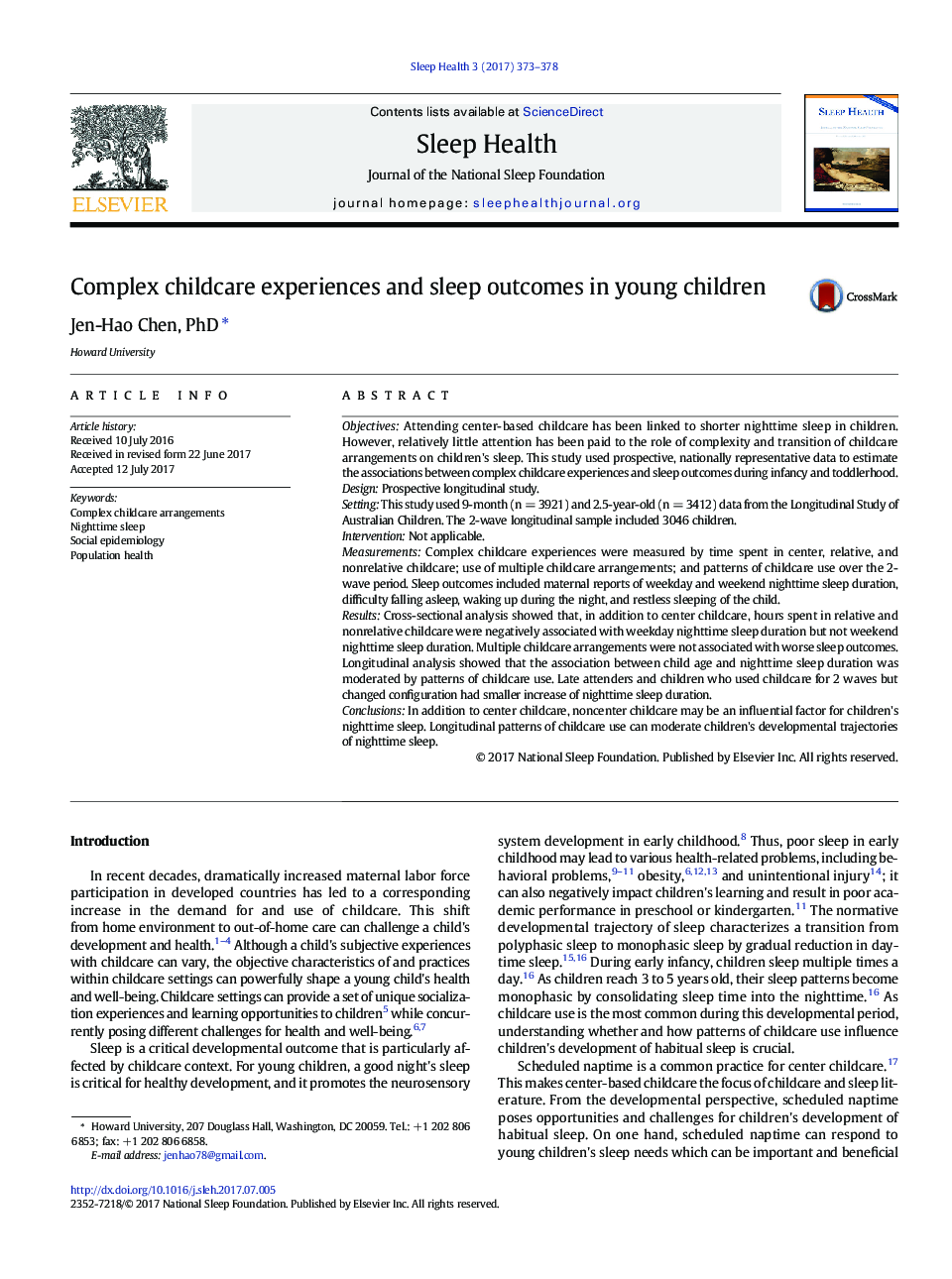| Article ID | Journal | Published Year | Pages | File Type |
|---|---|---|---|---|
| 5039494 | Sleep Health | 2017 | 6 Pages |
ObjectivesAttending center-based childcare has been linked to shorter nighttime sleep in children. However, relatively little attention has been paid to the role of complexity and transition of childcare arrangements on children's sleep. This study used prospective, nationally representative data to estimate the associations between complex childcare experiences and sleep outcomes during infancy and toddlerhood.DesignProspective longitudinal study.SettingThis study used 9-month (n = 3921) and 2.5-year-old (n = 3412) data from the Longitudinal Study of Australian Children. The 2-wave longitudinal sample included 3046 children.InterventionNot applicable.MeasurementsComplex childcare experiences were measured by time spent in center, relative, and nonrelative childcare; use of multiple childcare arrangements; and patterns of childcare use over the 2-wave period. Sleep outcomes included maternal reports of weekday and weekend nighttime sleep duration, difficulty falling asleep, waking up during the night, and restless sleeping of the child.ResultsCross-sectional analysis showed that, in addition to center childcare, hours spent in relative and nonrelative childcare were negatively associated with weekday nighttime sleep duration but not weekend nighttime sleep duration. Multiple childcare arrangements were not associated with worse sleep outcomes. Longitudinal analysis showed that the association between child age and nighttime sleep duration was moderated by patterns of childcare use. Late attenders and children who used childcare for 2 waves but changed configuration had smaller increase of nighttime sleep duration.ConclusionsIn addition to center childcare, noncenter childcare may be an influential factor for children's nighttime sleep. Longitudinal patterns of childcare use can moderate children's developmental trajectories of nighttime sleep.
